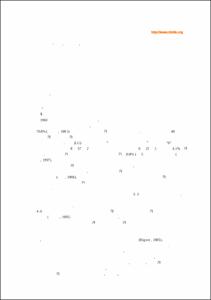취업유무에 따른 초산모의 배우자 지지와 역할긴장간의 관계 및 변화
- Keimyung Author(s)
- Koh, Hyo Jung
- Department
- Dept. of Nursing (간호학)
- Journal Title
- 여성건강간호학회지
- Issued Date
- 1998
- Volume
- 4
- Issue
- 1
- Abstract
- This study attempted to determine the relation between the maternal role strain and their husbands' support in employed and nonemployed first-time mothers, and how it changed over time. A descriptive, longitudinal and comparative study design was conducted to collect and analyzed the data at three times(at 3-4days, at 4-6wks and at 3-month postpartum) regarding the change of maternal role strain and their husbands' support in employed and nonemployed first-time mothers. The subjects were 133 first-time mothers who delivered vaginally at K university hospital in Deagu, Korea from Dec., 1994 to Oct., 1995. Among these 58 were employed and 75 were nonemployed first-time mothers. This instruments used to data collection in this study were by Hobbs(1968 : The Difficulty Index for First-time Parents), Staffensmeier(1982: Transition Difficulty Measure), Tayer(1976: Emotional Support from Husband), Lee, Hae Kyoung(1992 : Physical Support from Husband). The analysis of data was done with SAS/PC program which included percentage, x2-test, Pearson correlation, Repeated Measure ANOVA, Time Contrast Analysis and t-test. The results were as follows : 1. There was a significant negative correlation only at 3-4days(r=-.19, P=.0265) and at 4-6wks postpartum(r=-.18, P=.0392) between maternal role strain and husband's support of the first-time mothers. Thus, the more support from husband, the less maternal role strains the first-time mothers felt. Therefore, the 1st hypothesis that "the more husband's support the first-time mother felt at all the time of testing, the less maternal role strains they got" was partially supported at 3-days and 4-6 weeks postpartum. There was no correlation between maternal role strain and t husband's support of the employed first-time mothers at al testing times(at 3-4days postpartum : r=-.95, P=.9548, at 4-6wks postpartum : r=-.0960, P=.4733 and at 3-month postpartum : r=-.05, P=7306). On the contrary, the unemployed first-time mothers felt less maternal role strain when they received more support from their husband at 3-4 days postpartum(r=-.31, P=.0073) and at 4-6wks postpartum(r=-.23, P=.0490). 2. There was no difference of maternal role strain between two groups with regards to employment status(F=.97, P=.3270). But the maternal role strains of two groups were changed differently each other over time(F=3.89, P=.00234). Therefore, the 2nd hypothesis that "there was the difference in the maternal role strains with regard to employment status and over time" was rejected. 3. There was no difference in husband's support between the employed and the nonemployed first-time mothers(F=3.06, P=.0826). But there was a significant interaction between employment status and over time(F=3.64, P=.0267), so the support from husband of the employed and the unemployed first-time mothers was changed differently each other over time. The support from husband of the employed first-time mothers was lowered significantly and continuously at 4-6wks (F=5.20, P=.0263) and at 3-month postpartum(F=6.47, P=.0137) than at 3-4 days postpartum. On the contrary, there was no difference in change of husband's support of the employed first-time mothers between the 3-4 days and the 4-6wks postpartum(F=1.70, P=.1962) and between the 3-4 days and the 3-month postpartum(F=.21, P=.6513). Mean husband's support of the nonemployed first-time mothers was raised at 4-6wks postpartum than at 3-4 days postpartum but lowed at 3-month postpartum.
자료의 분석은 SPSS/PC^(+) WIN 10.0 프로그램을 이용하였으며, 연구목적에 따라 서술통계, t-test로 검증하였다. 도구의 신뢰도 검증을 위해서는 Cronbach's α를 구하였다.
- Alternative Title
- The Change and Relationship between Maternal Role Strain and Husband's Support in First-time Mothers with regard to their Employment Status
- Keimyung Author(s)(Kor)
- 고효정
- Publisher
- College of Nursing
- Citation
- 고효정. (1998). 취업유무에 따른 초산모의 배우자 지지와 역할긴장간의 관계 및 변화. 여성건강간호학회지, 4(1), 5–35.
- Type
- Article
- ISSN
- 1225-9543
- Appears in Collections:
- 2. College of Nursing (간호대학) > Dept. of Nursing (간호학)
- 파일 목록
-
-
Download
 oak-bbb-4787.pdf
기타 데이터 / 303.14 kB / Adobe PDF
oak-bbb-4787.pdf
기타 데이터 / 303.14 kB / Adobe PDF
-
Items in Repository are protected by copyright, with all rights reserved, unless otherwise indicated.